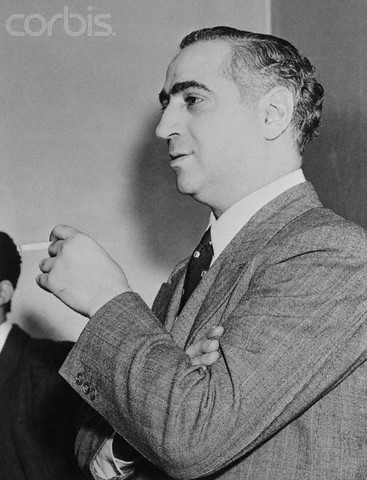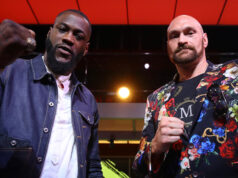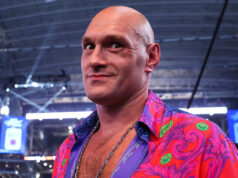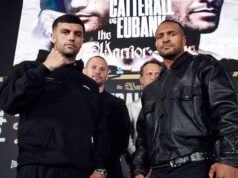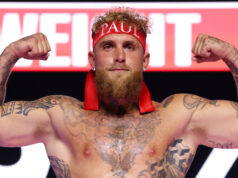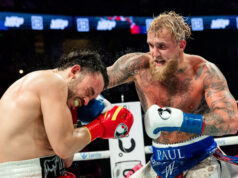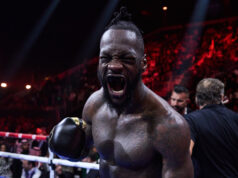Was this past June’s bout between Manny Pacquiao and Timothy Bradley fixed? Pacquiao was robbed all right, as Bradley himself knows full well. Before the judges’ scores were announced, he told promoter Bob Arum that he’d lost. But was the fix in? Maybe, though I’m more inclined to blame award-winning incompetence.
With the expulsion and removal of several officials at the 2012 London Olympics, it would appear that at least some of those matches were more crooked than Igor’s spine (the Teymur Mammadov “win” being the worst of a very bad lot). In 2010, it’s widely viewed that Paul Briggs took a dive against Danny Green. These are the types of circumstances which bring to mind real-life goodfella Frankie Carbo, boxing’s answer to Arnold Rothstein, the gambler who fixed the 1919 World Series.
Carbo was a member of Murder, Inc., the New York mob’s enforcement and assassination arm circa the 1930s and 1940s. He was suspected of engineering or participating in the elimination of at least several informers, including Abe “Kid Twist” Reles, who was a former Murder, Inc. member set to testify against Carbo himself. Reles “fell” from a motel room on Coney Island. There’s also been speculation that Carbo was behind the hit on Benjamin “Bugsy” Siegel. He was charged with no less than six murders.
I well recall a great line from a James Mitchell novel, in which a character is described as having “abandoned politics and turned to vice.” And for the very good reason that “vice paid better.” One can only speculate that Carbo gave up killing for boxing for the same reason. Not that Carbo became a fighter. No, the big money was in promoting — and fixing — fights.
Boxing was huge in the 1950s, rivaled only by baseball. There was a great deal of money to be made, if you knew how to buy or intimidate judges, managers, sports reporters, and the fighters themselves. And Carbo knew how to do just that. Not that he was an innovator.
Fixing fights goes back a whole lot farther than the mid 20th century. One need only to look at old-time gangster Owney Madden’s creative promoting of Primo Carnera. Jack Sharkey was himself suspected of throwing his fight with Carnera, a fight for the Heavyweight Championship of the World. The originator, no, but Carbo was certainly the fixed-fight king of his time.
Playing Oddjob to Carbo’s Goldfinger, junior partner Frank “Blinky” Palermo owned several fighters, including the great Ike Williams, who said “See these eyes? These aren’t even my real eyes. Blinky robbed me blind.”
Another of Palermo’s fighters, Clarence Henry, was arrested for offering Bobby Jones a bribe to throw his match with Joey Giardello. A very good heavyweight, once managed by Jack Dempsey, Henry was forced to retire from the ring. And those stories of Sonny Liston being somehow tied to the mob? Not just stories — Liston was bought and paid for by Carbo and Palermo.
Fighters ranging from Kid Gavilan to Jake LaMotta had ties to the mob, and Carbo and his crew were the de facto heads of state for boxing in those days, pulling all the strings behind the scenes. If you wanted a title shot, you had to go through them, and pay your dues. It took a fighter the caliber and stature of Sugar Ray Robinson to keep himself completely clean from their dirty ways.
Their reign of turpitude was brought to an end, as were those of so many other gangsters, by Senator Estes Kefauver’s televised investigations of organized crime. Both men exercised their right not to incriminate themselves, but that didn’t stop the authorities from bringing them to trial in 1961, charging them with conspiracy and extortion. Though Carbo and Palermo were each sentenced to long prison terms, neither did his full time. Both died free men, Carbo in 1976 and Palermo 20 years later.


